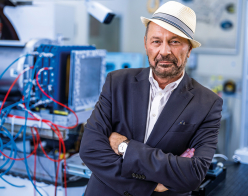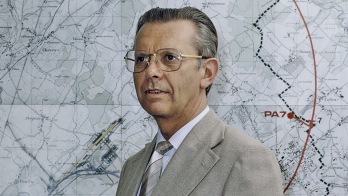Particle physicists have a duty to engage broader society in our adventure. But to do so effectively, says Ivo van Vulpen, we need to take a more critical look at our current practices.

What’s not to like about particle physics? Exploring the fundamental workings of the universe at international laboratories such as CERN is an inspiration to all, and regularly attracts media attention. However, despite the abundance of wonderful outreach activities by physicists and professional communicators, and science centres such as CERN’s new Science Gateway, it is important that we also take a critical look at our attitude towards science communication (and colleagues who engage in it) to see where we can improve.
Like many of my colleagues, I have always devoted a significant fraction of my time to share my passion for the field with diverse audiences. Society funds our research, so we have a fundamental duty to report back about our discoveries, act as an advocate for science in general, and educate and inspire the next generation. Doing outreach is not only enjoyable but also a valuable exercise that forces you to look at your own work from an outside perspective and to adapt your story for different audiences. Given the collective responsibility of particle physicists for garnering societal support for fundamental science, one might expect the entire field to support individuals involved in outreach activities. Regrettably, this is not always the case.
A new programme at the Leiden Institute of Physics, in collaboration with colleagues from the science communication research group, is investigating how we approach physics communication. When studying our attitudes, certain “points of attention” become rapidly apparent.
Critical points
One concerns cultural appreciation and the role of the scientist. Outreach is often still perceived as something someone does in their spare time and not a valuable activity for “serious” scientists. Many young researchers are all too aware of this attitude, and given the limited number of permanent positions and the emphasis on leadership roles and scientific output for career advancement, outreach often gets reduced priority. This means we’re missing out on an enormous potential of energy and ideas to connect with society. It is important that scientists realise that good communication skills are indispensable for an academic career, which, after all, includes teaching and grant writing. While professional communicators do great work, it’s crucial that more physicists are directly involved as they inherently radiate their passion and drive.
A second point is public relations versus the role of science in society. While every country can simultaneously benefit from new discoveries, communication departments within universities and research institutes – including CERN – often struggle to move beyond the frame of public relations and the latest scientific breakthroughs. In doing so, there is an increasing tendency to project a polished image and to be too self-focused while neglecting opportunities to provide insights into laboratory life – including failure, which is an inevitable aspect of the scientific process – and the stories behind the publications.
Impact assessment is a third factor where we could do better. Despite the increasing encouragement from funding agencies to make societal engagement an integral component of research proposals, we frequently fall short when it comes to conducting impact assessments. While researchers invest years in writing academic papers and scrutinise collaborators for failing to cite the most recent articles, we seem perfectly happy to ignore the literature on science-communication research and input from experts when developing outreach initiatives. Moreover, owing to our lack of collective memory, we do not have a systematic way to learn from good and bad practices.
Last but not least, developing effective communication skills is also critical in peer-to-peer interactions. We don’t often talk about it openly, but it is remarkable how physicists perpetuate the poor quality of presentations and seemingly endless meetings, and how increasingly challenging it is to understand developments in other sub-fields. With proper attention given to our internal communication, we would all stand to benefit significantly.
A change in culture does not happen overnight. Nevertheless, given the ongoing discussions about the future of the field, for example about a future collider at CERN, it is vital that we develop a stronger, broader and especially more open science communication strategy. It should be centred around curiosity and the amazing people in our field, as that is how we can connect with society to start a dialogue, while at the same time finding ways to support and acknowledge the work of colleagues who engage in outreach activities. Particle physics is a wonderful adventure. Let’s make sure the world knows about it.







